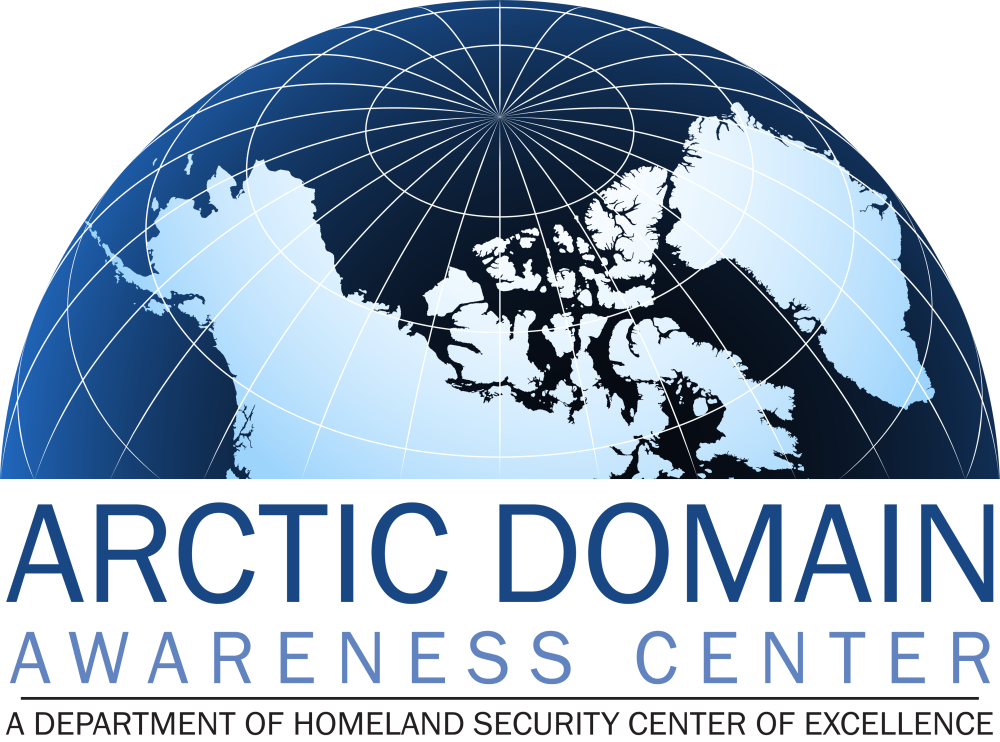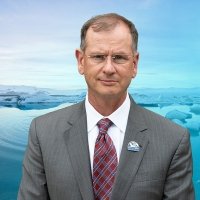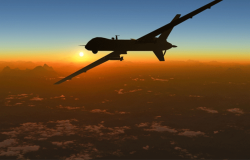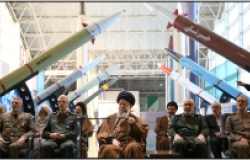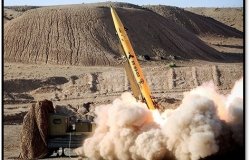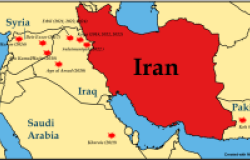170304-Z-MW427-170 by U.S. Air Force (CC BY-NC 2.0)
Arctic Security Dialogues IV | Progress on the Department of the Air Force Arctic Strategy
Overview
The Department of the Air Force released its first Arctic Strategy on July 21, 2020. Signed by the Secretary of the Air Force, the Chief of Staff of the Air Force, and Chief of Staff of the Space Force, the Strategy noted that the “Arctic is among the most strategically significant regions of the world today.” Four lines of effort were included:
- Vigilance in all domains
- Projecting power through a combat-credible force
- Cooperation with allies and partners
- Preparation for Arctic operations
Over the past year, the Department of the Air Force has worked to optimize air and space capabilities throughout the Arctic region in support of Department of Defense objectives. What progress has been made? Which obstacles and opportunities have arisen?
Selected Quotes
Kelli Seybolt, Deputy Under Secretary of the Air Force
"As you look at the map, you can see the vectors by which things can happen. It’s clear that some of our competitors are increasing their presence in the region. I don't think it's irrational, in some ways, certainly for Russia to be doing that, given that they largely rely on oil and gas for funding their economy and so they have a very strong strategic interest in trying to get the gas out of the Yamal Peninsula out to places where they can sell it.
But then we also see this mind-boggling statement that China put out several years ago, that they're an Arctic nation. If I look at the map from above, I don't see that, but they're certainly moving to legitimize a role in the region, as they continue with their One Belt, One Road initiative. The Polar, Silk Road initiative, things of that nature, to try to legitimize a role in the Arctic, and frankly, this is an area where we probably need to be working with all of the Arctic nations to ensure that our common interests are protected."
"Last week marked the one-year anniversary of our strategy, which supports a secure and stable Arctic where national interests are safeguarded, the homeland is protected, and nations address shared challenges cooperatively. For the past 12 months we have made progress against…domain vigilance, power projection, cooperation with allies and partners, and improving our preparation for Arctic operations. Advancing these objectives builds readiness and furthers our national security interests at a time when the Arctic is reaching a growing strategic importance and intensifying geopolitical competition. Much of this competition is accelerated by climate change, which has increased physical access and fueled an escalation of activity and ambition in the region. Fortunately, as we respond and adapt to these changing conditions, we have something that our competitors do not: a network of strong defense relationships with 6 of the 7 other Arctic nations, providing key strategic advantages."
"As there’s more activity and changing landscape, it’s more important than ever that we operate together in this environment, that we learn how to do it better, and improve how we work together—not as a single force, but alongside our allies and partners."
"There’s a lot happening in terms of strategic competition, and I think that that’s something that we have to be prepared for. But those countries that have those strongest interests in the Arctic—and particularly our allies—that’s where I think we need to focus our attention."
Lt. Gen. S. Clinton Hinote, Deputy Chief of Staff for Strategy, Integration, and Requirements, U.S. Air Force
"One of our founders of the United States Air Force, and certainly someone who is an outspoken advocate for airpower and for strategic power, was Billy Mitchell. And Billy Mitchell has a quote that many of us who work Arctic issues are probably sick of hearing. But I think for the rest of the audience it’s actually really important… Way back in the 1930s, this airpower advocate said that 'Whoever holds Alaska, will hold the world.' And there is a really interesting kernel of truth inside that quote, and that is that there is a special place for Alaska when you talk about power projection and defense of the homeland. So Alaska is an incredibly well-positioned base of operations for defending the northern approaches to the United States. And this is why so many of the intercepts that happen—when we go and intercept an adversary’s aircraft coming from the north—we do that with assets that are stationed in Alaska. But also, in addition to its uses as a defensive base of operations, you could also think of military power that is stationed in the high north, and especially in Alaska, as being forward positioned in two major theaters, the Indo Pacific, and in Europe, and in essence, you could conceivably do power projection sorties out of Alaska to both of those areas. And, in fact, what we have seen in our wargaming is that it's an incredibly effective place to base air operations out of.
"We see the Arctic situation changing, there are two major changes that we acknowledge in our strategy and that we’ve got to think about, assess, and adjust the way that we approach things. So the first is, it’s becoming easier to operate in the Arctic because a lot of stuff is melting. Because of that, you see that the ability to get up there and do things of importance is increasing… So not only is there a warming trend, but that’s allowing more activity. Now, interestingly, all that activity is not benign. As an example, last year, we intercepted more Russian military flights near Alaska than we have ever since the Cold War. So there is now a trend not only of competition, but of competition in the military realm. And because of that, that change, that is what drove our focus on the Arctic and the release of a strategy."
"What we are seeing—and this builds on quite a bit of the wargaming that we’ve done up to this point—is that the information about what is going on in the Arctic is actually a form of sovereignty for ourselves, our allies, and partners. And in so many ways, we can’t fortify each other’s sovereignty by sharing that information. And so there is very much a shared interest that we have with the Arctic nations and being able to talk about, to share, to understand what is really going on."
Lt. Gen. William J. Liquori, Deputy Chief of Space Operations, Strategy, Plans, Programs, Requirements, and Analysis, United States Space Force
"As all services do, we build a budget and we try to put as much capability into that budget as possible. The reality is our budget is finite and so we’ve got to be able to be creative as we build those budgets. Sometimes, we’re able to pay for things completely on our own, and other times we need to be able to rely on partners… Well in the case of a couple polar satellite communications payloads that we have been working on in the space force, they provide protected satellite communications, so jam-resistant communications. Instead of putting those on our own satellite, instead of developing our own satellite, integrating those payloads onto that satellite, and launching those satellites on our own, we were able to have a good conversation with our allies in Norway, and they've agreed to, because they had two satellites that were going to go up on orbit along the timeframe that we needed for these SATCOM payloads, they are now going to integrate those payloads for us on their satellites. They will launch them, and therefore, we get the benefit of a ride to space if you will, and a host vehicle to put our payloads on. It's a good way to strengthen the partnership. It's a good way to share costs but also deliver capabilities that we can both leverage."
"The sparse nature of resources in [the Arctic] to support military operations just brings space more to the forefront here in this region. So the satellite command and control capabilities that are at Tooley, those are there because military operations are going to happen in the Arctic, and that means that we’re going to need to have satellite coverage in the Arctic which means polar orbits. So we needed an antenna station that would be able to talk to those satellites in a polar orbit. And so that’s there for a reason and continues to be a key piece of our satellite control network."
"We have a global perspective in both services. The satellites that we have on orbit today are providing capabilities certainly to the Arctic region, as orbits go. They are also providing capabilities to our operations in other areas and regions… We’re trying to do what we can to maximize the resources that we’re able to deliver to this region and others, through partnerships, as well as our own individual budget.."
Amb. Mark Green
"While there’s no imminent threat of conflict in the Arctic, the increasing activity and proximity of these aggressive powers requires the U.S. to retrain situational awareness and operational capacity. The US armed forces must be prepared to defend US interests in the Arctic."
Moderators
Panelists

Kelli L. Seybolt
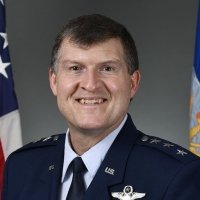
Lt. Gen. S. Clinton Hinote
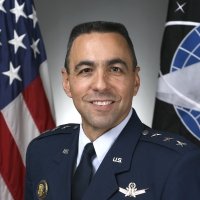
Lt. Gen. William J. Liquori
Hosted By

Polar Institute
Since its inception in 2017, the Polar Institute has become a premier forum for discussion and policy analysis of Arctic and Antarctic issues, and is known in Washington, DC and elsewhere as the Arctic Public Square. The Institute holistically studies the central policy issues facing these regions—with an emphasis on Arctic governance, climate change, economic development, scientific research, security, and Indigenous communities—and communicates trusted analysis to policymakers and other stakeholders. Read more

Kissinger Institute on China and the United States
The Kissinger Institute works to ensure that China policy serves American long-term interests and is founded in understanding of historical and cultural factors in bilateral relations and in accurate assessment of the aspirations of China’s government and people. Read more

Canada Institute
The mission of the Wilson Center's Canada Institute is to raise the level of knowledge of Canada in the United States, particularly within the Washington, DC policy community. Research projects, initiatives, podcasts, and publications cover contemporary Canada, US-Canadian relations, North American political economy, and Canada's global role as it intersects with US national interests. Read more
Thank you for your interest in this event. Please send any feedback or questions to our Events staff.


